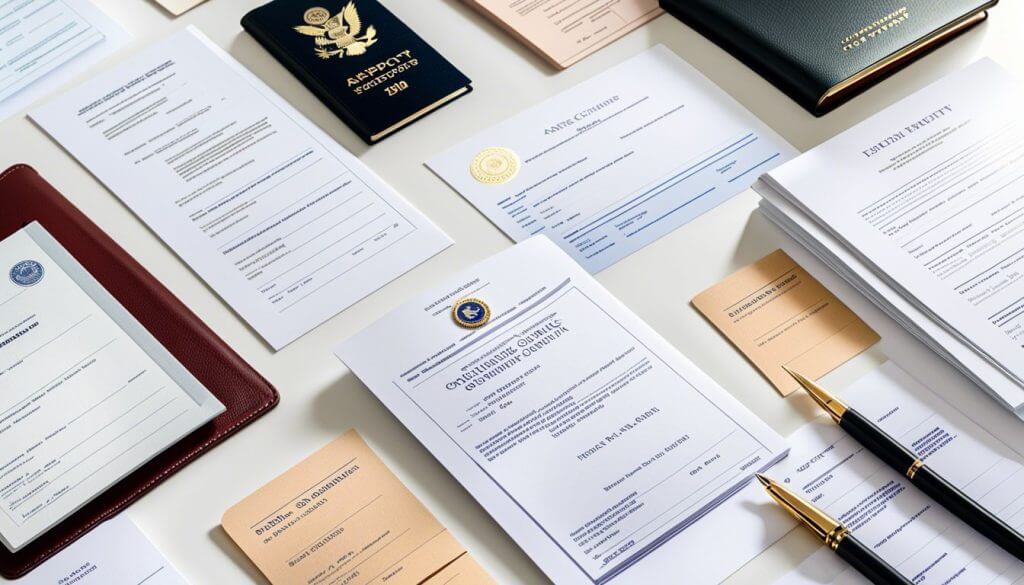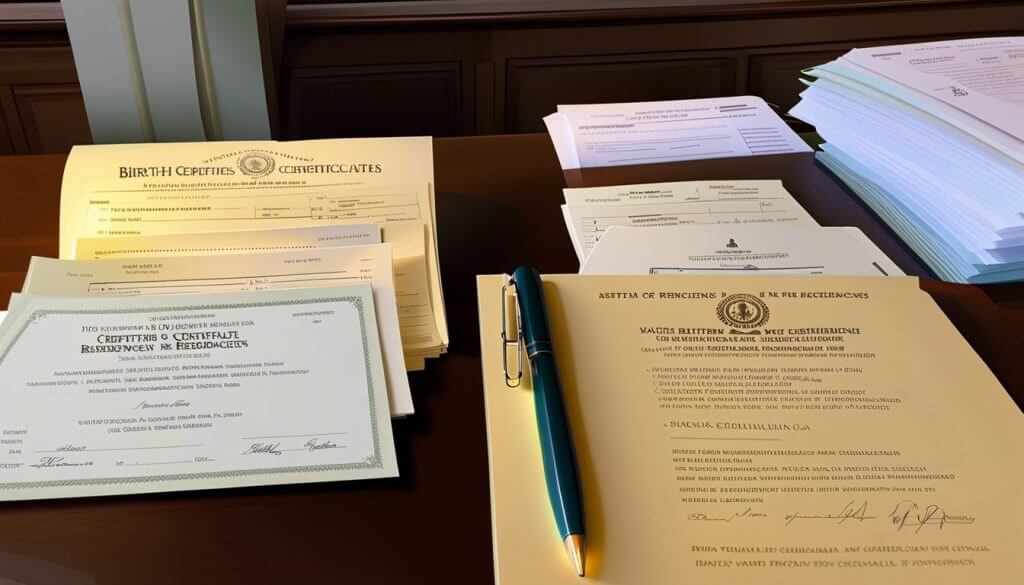Over the years, the Violence Against Women Act (VAWA) has been a crucial resource for victims of abuse or violence. It not only provides a pathway to independence, but also, ultimately, to a secure and peaceful life.
When applying for this resource, many questions arise, such as what is the list of documents to apply for VAWA, what is a VAWA visa, who can apply for it, among many others. In this guide, the Jaskot Law team will provide you with the answers you need.
What is a VAWA Visa?
The VAWA (Violence Against Women Act) visa is a legal remedy for those who have suffered physical or emotional abuse by a U.S. citizen or permanent resident spouse. This visa allows victims, regardless of their immigration status, to seek protection without depending on the aggressor.
In addition, the VAWA visa seeks to empower those who have experienced abuse by offering them a pathway to gain the independence and security necessary to rebuild their lives in the United States. By granting rights and remedies to victims, VAWA plays a crucial role in the fight against domestic violence.

VAWA visa eligibility requirements
As with any immigration process, applying for a VAWA visa involves meeting certain eligibility requirements. In general, petitioners must meet the following criteria:
- Qualified relationship: You must have a qualified relationship with a U.S. citizen or a legal permanent resident (LPR). You can be any of the following:
- The spouse or former spouse of a U.S. citizen or abusive LPR.
- The child (under 21 and unmarried) of a U.S. citizen or abusive LPR.
- The parent of an abusive U.S. citizen (if the U.S. citizen is at least 21 years old).
- Abuse or extreme cruelty: You must have suffered physical abuse or extreme cruelty by the U.S. citizen or LPR family member. This includes physical violence and other forms of abuse, such as psychological, sexual, or financial.
- Residence with the abuser: You must have resided with the abusive family member. There are some exceptions to this requirement in certain circumstances.
- Good moral character: You must demonstrate that you are a person of good moral character. Generally, this requirement involves a background check and may include providing affidavits from friends, family, and community members.
- Residency: If you are the battered spouse, you may have to prove that you entered the marriage in good faith and not just for the purpose of obtaining immigration benefits.
- Admissibility: You must be admissible to the United States. Certain grounds of inadmissibility may be waived for self-petitioners under VAWA.
Remember that immigration laws and policies can change. Therefore, to obtain the most accurate and up-to-date eligibility criteria, it is advisable to consult the most recent information from USCIS or a specialized attorney. At Jaskot Law, we guide you and evacuate all your doubts.
List of documents to apply for VAWA: what do I need?
Being a complex and quite extensive process, each applicant must submit a list of documents to apply for VAWA that, beyond being mandatory, can make a difference in the process. Below is an extensive list of what you need to submit:
Personal identification documents
Secure your identity and support your nationality with essential VAWA application documentation, including:
- Passport: A valid passport is required for identification and to prove your nationality.
- Birth certificate: Official document to confirm not only your identity, but also your age.
- Identification card: Additional photo identification may be required to validate the documentation presented.
Relationship Documents
Validate your relationship with the aggressor through official documents that certify your marital status and relationship status in general. You can submit the following:
- Marriage certificate (if applicable): To prove your legal marriage to the offender, if you are married.
- Divorce decrees (if applicable): Required if previous marriages were legally dissolved.
- Evidence of the relationship: Documents that prove the relationship between you and the aggressor, if you are not married.
Evidence of Abuse
Gather key evidence to support your case, from reports issued by law enforcement or medical authorities. Some of the essential documents are:
- Police reports or restraining orders: Official law enforcement reports detailing incidents of abuse and legal orders of protection against the abuser.
- Medical records: Health care documents that record visits, treatment, or hospital stays as a result of abuse.
- Psychological evaluations: Professional mental health evaluations that provide insights into the psychological impact of the abuse you have experienced.
- Witness affidavits: Affidavits from friends, family, neighbors, or professionals who can attest to the abuse or your character.
Legal Documents
Complete the forms and file relevant court documents for your VAWA self-petition, which ensures a strong and supported legal process:
- Immigration Forms and Petitions: Submitting, in particular, the Form I-360, Special Immigrant Petition (VAWA self-petition). It is the official document used to apply for the VAWA visa.
- Court documents: Any documents from legal proceedings that have resulted from the abuse and that are relevant.
Residency documents
Support your case with solid evidence, from the offender’s citizenship to documents evidencing your shared residency, proving your connection to the U.S.:
- Proof of the offender’s citizenship or immigration status: It includes copies of the offender’s birth certificate, passport, naturalization certificate, or green card.
- Proof of your residence with the abuser: Documents showing that you lived with the abuser. This could include leases, property deeds, utility bills or other documents proving cohabitation.
Statement
Set out in detail the physical or emotional abuse you suffered, as this is a crucial part of your application:
- Personal statement: A personal and descriptive account of your relationship with the abuser, the incidents of abuse and how it has affected you.
At Jaskot Law, we understand how overwhelming it can be to face the process and gather all this information that causes stress and, in many occasions, revives unwanted memories. Our team will be with you every step of the way so you can leave everything in the past.

Tips to keep in mind when applying for a VAWA visa
When applying for the VAWA visa, it is crucial to prepare a strong application in order to increase the chances of approval. The following are some aspects to be taken into account:
| Gather evidence rigorously | Gather all forms of evidence to support your claim, such as police reports, court documents, medical records, and witness affidavits. |
| Understand eligibility requirements | Make sure you meet the criteria for a VAWA visa: be a victim of physical abuse or extreme cruelty by a U.S. citizen or lawful permanent resident (spouse, parent or child). |
| Fill all forms accurately | Complete all required forms thoroughly and accurately, including Form I-360, Special Immigrant Petition. |
| Provide a detailed personal statement | Write a personal statement detailing chronologically the abuse, how it affected you, and why you are seeking VAWA protection. |
| Maintain confidentiality | Remember that the VAWA application process is confidential, and your abusive family member will not be notified of your request. |
| Pay attention to deadlines | Pay attention to any deadlines associated with your application to avoid delays or denials. |
| Prepare for the next steps | While your VAWA application is pending, be prepared for possible outcomes and next steps, such as adjusting your status to obtain lawful permanent residency. |
Conclusion
As a crucial immigration resource for all people suffering from different types of abuse or violence, it is normal for the list of documents to apply for VAWA to be extensive. Not only that, but each document is essential to ensure the success of the application.
We know how emotionally charged and stressful this process can be, which is why the team at Jaskot Law is prepared to provide you with the necessary support and guidance to face it successfully and safely and, thus, take a step towards a secure life.
Sources
Form I-360, Petition for Special Immigrant Status
USCIS – Abused Spouse, Children and Parents
Frequently Asked Questions
How long does the VAWA visa process take?
The VAWA visa process may take time considering the backlog of cases and the review of evidence. Although it varies, an estimated wait time would be approximately 16 to 21 months for a VAWA petition to be processed.
Can my family benefit from my VAWA visa?
Yes, when you apply for VAWA, you can include your unmarried children under the age of 21 in your petition. If eligible, they will be able to obtain derivative benefits such as work authorization and potentially permanent residency.
What happens if I get divorced before applying for VAWA?
It is still possible to apply for VAWA after a divorce as long as the divorce is the result of abuse and the petition is filed within two years of the divorce, demonstrating the connection between the abuse and the dissolution of the marriage.

